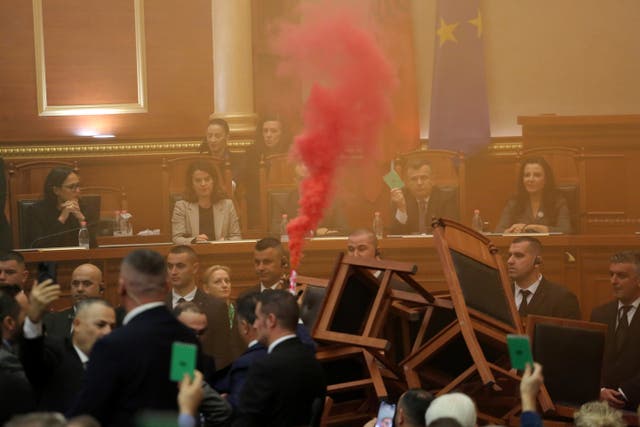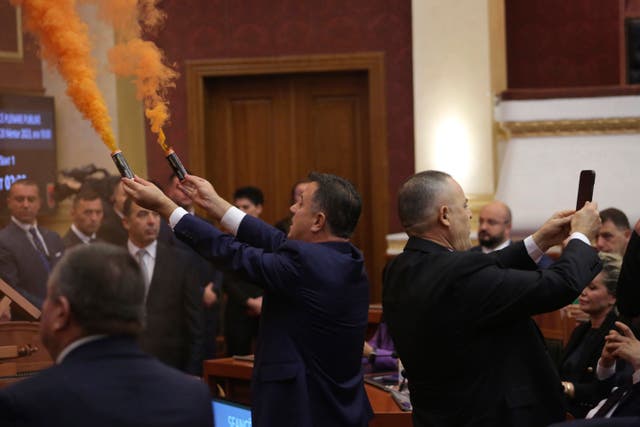Albanian opposition legislators have disrupted a parliamentary session again in a protest against what they say is increasingly authoritarian rule by the governing Socialists.
Democratic figures lit flares and piled chairs on top of each other in the middle of the hall the minute Prime Minister Edi Rama took his seat to vote on next year’s budget.
A cordon of bodyguards stopped the opposition from getting near the seats of the cabinet.
The left-wing Socialists, who hold 73 seats in the 140-seat parliament, made a quick vote in principle and closed the session after five minutes.
A debate on each budget item is expected later this week.

The opposition wants to create parliamentary investigative commissions to probe alleged cases of corruption involving Rama and other top government officials.
The Socialists say the opposition’s requests are not in line with constitutional requirements.
Gazmend Bardhi, one of the opposition figures, said they would not allow the parliament to carry out its normal work.
“Our battle is to show to each citizen that this is not the parliament representing them,” he said.
Bledi Cuci, head of the Socialists’ parliamentary grouping, urged Albanians to note that the parliament was approving the largest budget ever, and twice the size of 2013 when the Socialists came to power.
“In democracy, the opposition speaks with alternatives, and not with flares,” he added.
The disturbances first started last month, two days before prosecutors accused Sali Berisha, the former prime minister and president for the Democratic Party, of corruption over of a land-buying scheme now under legal investigation in the capital, Tirana.

Mr Bardhi said the opposition would radicalise its protests, but did not elaborate.
The opposition has been divided into at least three groupings since 2021 when Mr Berisha and his family members were barred by the United States from entering the country, and later also the United Kingdom, because of alleged involvement in corruption.
Mr Berisha is the fourth top Albanian official to be barred from entering the US on grounds of corruption.
Post-communist Albania has struggled to fight corruption, which has impeded the country’s democratic, economic and social development.






